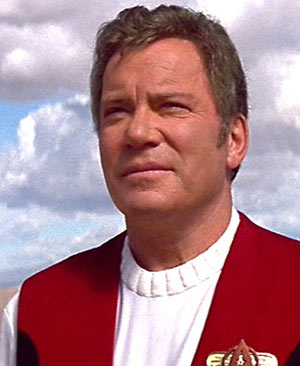It's interesting to me that the characters on TNG are called too perfect, too pc; but than Archer is called an ass, no captain should act that way, etc.
What's an acceptable amount of "human frailities and weaknesses that characters must battle" vs. "I hate that character, he's weak and bad"?
I love Enterprise, but if there's an episode that I really hate Archer in it's Daedalus where he yells at Trip for bringing up perfectly valid concerns. That's not struggling with human flaws or hard decisions--that was just being an ass. But I think in the majority of the episodes, they did o.k. with Archer being a flawed character who I found interesting.
It just seems like there's an awful amount of contradiction in what people expect from Trek characters and character development--many characters are hated for being too perfect or too flawed. What's just the right amount of flawed?
I suppose that many will think that TNG characters are too perfect, and ENT characters are too flawed, and TOS is perfect.
I'd like to see some comparisons of the various crews--who's too perfect, who's too flawed, and who's just right, and why? What are some examples of each kind of character?
What's an acceptable amount of "human frailities and weaknesses that characters must battle" vs. "I hate that character, he's weak and bad"?
I love Enterprise, but if there's an episode that I really hate Archer in it's Daedalus where he yells at Trip for bringing up perfectly valid concerns. That's not struggling with human flaws or hard decisions--that was just being an ass. But I think in the majority of the episodes, they did o.k. with Archer being a flawed character who I found interesting.
It just seems like there's an awful amount of contradiction in what people expect from Trek characters and character development--many characters are hated for being too perfect or too flawed. What's just the right amount of flawed?
I suppose that many will think that TNG characters are too perfect, and ENT characters are too flawed, and TOS is perfect.
I'd like to see some comparisons of the various crews--who's too perfect, who's too flawed, and who's just right, and why? What are some examples of each kind of character?



